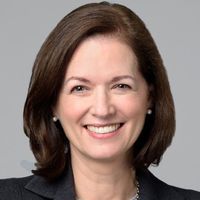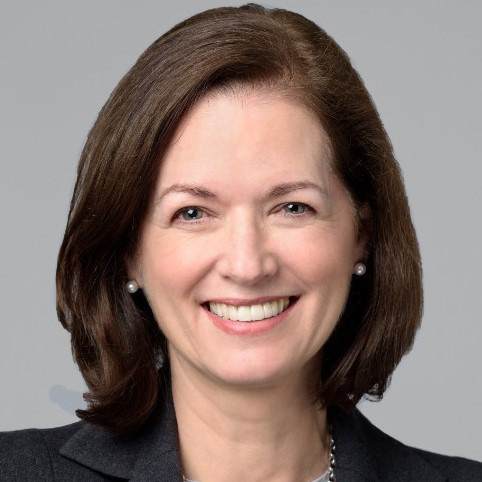The Future of Financial Advice Is Human: Gen Z Trusts Advisers, But AI Skills Matter
Graduates entering the workforce trust human advisers more than AI tools with their financial planning. But AI can still enhance the client/adviser relationship.


Profit and prosper with the best of Kiplinger's advice on investing, taxes, retirement, personal finance and much more. Delivered daily. Enter your email in the box and click Sign Me Up.
You are now subscribed
Your newsletter sign-up was successful
Want to add more newsletters?

Delivered daily
Kiplinger Today
Profit and prosper with the best of Kiplinger's advice on investing, taxes, retirement, personal finance and much more delivered daily. Smart money moves start here.

Sent five days a week
Kiplinger A Step Ahead
Get practical help to make better financial decisions in your everyday life, from spending to savings on top deals.

Delivered daily
Kiplinger Closing Bell
Get today's biggest financial and investing headlines delivered to your inbox every day the U.S. stock market is open.

Sent twice a week
Kiplinger Adviser Intel
Financial pros across the country share best practices and fresh tactics to preserve and grow your wealth.

Delivered weekly
Kiplinger Tax Tips
Trim your federal and state tax bills with practical tax-planning and tax-cutting strategies.

Sent twice a week
Kiplinger Retirement Tips
Your twice-a-week guide to planning and enjoying a financially secure and richly rewarding retirement

Sent bimonthly.
Kiplinger Adviser Angle
Insights for advisers, wealth managers and other financial professionals.

Sent twice a week
Kiplinger Investing Weekly
Your twice-a-week roundup of promising stocks, funds, companies and industries you should consider, ones you should avoid, and why.

Sent weekly for six weeks
Kiplinger Invest for Retirement
Your step-by-step six-part series on how to invest for retirement, from devising a successful strategy to exactly which investments to choose.
In a world increasingly defined by technology, it would be logical to assume that investors, particularly those in younger generations, seek financial advice from the latest digital innovation. That assumption is wrong.
Despite being digital natives, members of Gen Z who are entering the workforce aren't putting their complete faith in financial influencers or generative AI tools for financial advice. Instead, they are primarily placing their trust in financial advisers.
According to new research from CFA Institute, conducted to glean insights about recent graduates' outlook on their careers and wealth building, 91% of U.S. graduates report they trust human advisers the most.
From just $107.88 $24.99 for Kiplinger Personal Finance
Become a smarter, better informed investor. Subscribe from just $107.88 $24.99, plus get up to 4 Special Issues

Sign up for Kiplinger’s Free Newsletters
Profit and prosper with the best of expert advice on investing, taxes, retirement, personal finance and more - straight to your e-mail.
Profit and prosper with the best of expert advice - straight to your e-mail.
The Kiplinger Building Wealth program handpicks financial advisers and business owners from around the world to share retirement, estate planning and tax strategies to preserve and grow your wealth. These experts, who never pay for inclusion on the site, include professional wealth managers, fiduciary financial planners, CPAs and lawyers. Most of them have certifications including CFP®, ChFC®, IAR, AIF®, CDFA® and more, and their stellar records can be checked through the SEC or FINRA.
That's nearly double the trust placed in online influencers (53%) and significantly more than those who say they trust AI tools like ChatGPT (49%).
To me, that says everything about where our industry needs to focus to support the needs of the next generation. We need people and technology.
The human element
Over the course of my career in wealth management, I have always believed that trust remains the foundation of good advice and productive adviser/client relationships. That belief has never been more validated. People and relationships build trust. Technology can augment it, but does not supplant it.
This trust-centric mindset is also reflected in Gen Z's motivations for building wealth, which are grounded in stability and long-term well-being rather than short-term trends or quick wins.
When asked their motivation, Gen Z graduates responded that they prioritize security over everything: 63% said their top driver is financial security, and 60% said it's the ability to meet day-to-day needs without worry.
I'm not surprised by these findings. They are practical, realistic concerns, not meme-stock fantasies, bitcoin bubbles or overnight riches, as the headlines may lead you to believe. Today's graduates largely aren't chasing hype.
They're looking for solid financial partnerships to grow their wealth for the long term.
This ethos is reflected in how they want to engage with wealth managers. Nearly half (45%) say they are most likely to work with someone they trust and who puts their interests first. They value relationships, collaboration and personalization.
That's both a challenge and an opportunity for our industry. Trust must be earned, not marketed. We must meet this generation where they are, with transparency, ethics, expertise and a deep understanding of their goals.
The best wealth managers establish relationships with their clients early and understand the underlying values and principles behind their desire to build wealth. They go beyond the dollars and cents, digging into the "why" behind the financial plan.
We must remain true to these fundamentals of fiduciary, client-centered advice, even as the world of finance continues to evolve at an increasingly rapid pace.
While a knee-jerk reaction may be to adopt each new tech innovation, or market every new tool, our superpower is keeping our human perspective and deep-expertise front and center.
Planning, not prediction
Another clear takeaway from our survey: Planning matters. Two-thirds (67%) of graduates said a solid financial plan is key to achieving their goals 10 years from now. Another 59% emphasized the importance of understanding financial markets and strategies.
This reinforces what many advisers already know. The best investment strategy is one that is rooted in the long term and tailored to the individual — not reactive, not totally algorithmic and certainly not influenced by the social media flavor of the month.
Looking for expert tips to grow and preserve your wealth? Sign up for Building Wealth, our free, twice-weekly newsletter.
We recently spoke with Yen Truong, a recent graduate of the Master of Science in Finance program at California State University, Sacramento, and current financial planning specialist at CAPTRUST, to glean additional insight into the advising landscape.
Yen underscored the importance of perspective as it relates to a career in finance. "A good adviser provides more than just financial strategies," she told us. "They build trust with their clients, educate them, and offer perspective during emotional and volatile times."
As our industry evolves and geopolitical strife continues to dominate headlines, reinforcing this value proposition becomes even more important. Financial advice is not just a transaction. It's a relationship. And it is built on integrity, empathy and professional excellence.
AI supports, not replaces
Of course, technology remains an essential and exciting part of the equation. Artificial intelligence has the potential to enhance, but not replace, the human adviser. Used responsibly, it can free up time, improve accuracy and unlock better client insights.
AI integration can also help to provide the type of personalized solutions that the next generation is looking for from their wealth manager, creating a unique experience that meets their specific needs. One-size-fits-all certainly does not apply as it relates to the wealth management relationship of the future.
Yen described AI as "a powerful tool for improving productivity in research analysis and investment operations," but emphasized that it has not, and cannot, replace the core of what advisers do.
This is the future I see: smart, empathetic investment professionals who are fluent in both financial markets and emerging technology. I believe the most successful people in finance will combine human intelligence with artificial intelligence — enhancing judgment, not outsourcing it.
As organizations, we can support our staff to upskill and leverage AI to ultimately benefit their clients. Our data shows that graduates recognize the importance of having AI skills and seek out employers who are willing to support them in their journey to leverage it.
To remain relevant, trusted partners, doubling down on what Gen Z is asking for gets us there: Human connection, personalized advice and a clear roadmap to financial security.
This generation is not looking to cut corners. They're looking to do it right. Our job as financial professionals is to meet them there. I believe this mindset doesn't just serve Gen Z investors, it elevates the standard for how we serve all clients.
Related Content
- Can AI Help With Your Finances?
- Sorry, But AI Alone Doesn't Cut It for Financial Planning
- How Gen Z's Retirement Planning and Investing Are Different
- How Young People Can Own Their Financial Future Authentically
- Investment Gamification: Not All Cons, Some Important Pros
Profit and prosper with the best of Kiplinger's advice on investing, taxes, retirement, personal finance and much more. Delivered daily. Enter your email in the box and click Sign Me Up.

Marg Franklin leads CFA Institute and its more than 190,000 members worldwide in promoting the highest standards of education, ethics, and professional excellence in the investment profession. Franklin has built her career over the course of more than 25 years in the investment and wealth management industries, in both institutional and private wealth. She is a CFA charterholder and a member of CFA Society Toronto.
-
 Quiz: Do You Know How to Avoid the "Medigap Trap?"
Quiz: Do You Know How to Avoid the "Medigap Trap?"Quiz Test your basic knowledge of the "Medigap Trap" in our quick quiz.
-
 5 Top Tax-Efficient Mutual Funds for Smarter Investing
5 Top Tax-Efficient Mutual Funds for Smarter InvestingMutual funds are many things, but "tax-friendly" usually isn't one of them. These are the exceptions.
-
 AI Sparks Existential Crisis for Software Stocks
AI Sparks Existential Crisis for Software StocksThe Kiplinger Letter Fears that SaaS subscription software could be rendered obsolete by artificial intelligence make investors jittery.
-
 Quiz: Do You Know How to Avoid the 'Medigap Trap?'
Quiz: Do You Know How to Avoid the 'Medigap Trap?'Quiz Test your basic knowledge of the "Medigap Trap" in our quick quiz.
-
 5 Top Tax-Efficient Mutual Funds for Smarter Investing
5 Top Tax-Efficient Mutual Funds for Smarter InvestingMutual funds are many things, but "tax-friendly" usually isn't one of them. These are the exceptions.
-
 Why Invest In Mutual Funds When ETFs Exist?
Why Invest In Mutual Funds When ETFs Exist?Exchange-traded funds are cheaper, more tax-efficient and more flexible. But don't put mutual funds out to pasture quite yet.
-
 We Retired at 62 With $6.1 Million. My Wife Wants to Make Large Donations, but I Want to Travel and Buy a Lake House.
We Retired at 62 With $6.1 Million. My Wife Wants to Make Large Donations, but I Want to Travel and Buy a Lake House.We are 62 and finally retired after decades of hard work. I see the lakehouse as an investment in our happiness.
-
 Social Security Break-Even Math Is Helpful, But Don't Let It Dictate When You'll File
Social Security Break-Even Math Is Helpful, But Don't Let It Dictate When You'll FileYour Social Security break-even age tells you how long you'd need to live for delaying to pay off, but shouldn't be the sole basis for deciding when to claim.
-
 I'm an Opportunity Zone Pro: This Is How to Deliver Roth-Like Tax-Free Growth (Without Contribution Limits)
I'm an Opportunity Zone Pro: This Is How to Deliver Roth-Like Tax-Free Growth (Without Contribution Limits)Investors who combine Roth IRAs, the gold standard of tax-free savings, with qualified opportunity funds could enjoy decades of tax-free growth.
-
 One of the Most Powerful Wealth-Building Moves a Woman Can Make: A Midcareer Pivot
One of the Most Powerful Wealth-Building Moves a Woman Can Make: A Midcareer PivotIf it feels like you can't sustain what you're doing for the next 20 years, it's time for an honest look at what's draining you and what energizes you.
-
 Stocks Make More Big Up and Down Moves: Stock Market Today
Stocks Make More Big Up and Down Moves: Stock Market TodayThe impact of revolutionary technology has replaced world-changing trade policy as the major variable for markets, with mixed results for sectors and stocks.